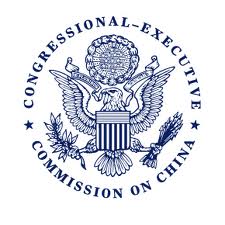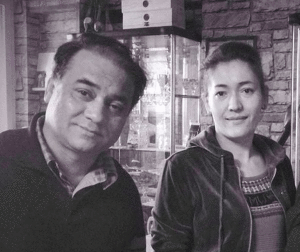Troublesome China – New Human Rights Report Confirms a Decline
 “Human rights and rule of law conditions in China overall did not improve this past year, and declined in some of the areas covered by this report.” And so begins the Congressional-Executive Commission on China‘s (CECC) 2014 Annual Report, a non-sugarcoated analysis of the dilapidated state of human rights and rule of law in China these days.
“Human rights and rule of law conditions in China overall did not improve this past year, and declined in some of the areas covered by this report.” And so begins the Congressional-Executive Commission on China‘s (CECC) 2014 Annual Report, a non-sugarcoated analysis of the dilapidated state of human rights and rule of law in China these days.
Required by regulation, the CECC publishes an annual report analyzing these issues and this year’s report demonstrates that President Xi Jinping continues to consolidate his power through political purges and other methods not seen since the end of the Cultural Revolution. But, as the this year’s report shows, the periphery – both from a geographic as well as a societal perspective – continues to buck the central government’s control and as a result, continues to experience a harsh crackdown.
The Chinese government’s reaction to the Hong Kong protests earlier this month – calling the peaceful protesters “extreme” and threatening “unimaginable consequences” – pale in comparison to its suppression of any attempts in Tibet or Xinjiang to give life to the term “autonomous” in the title Autonomous Region which both nominally are. In the past year alone, of the 141 Chinese political prisoners that China has arrested or detained (see CECC list here), 101 are Tibetan or Uigher (the ethnic group that populates Xinjiang province in western China).
The recent sentencing of Uigher professor, Ilham Tohti, reflects the Chinese government’s inability to comprehend a notion of autonomy that
could mean anything other than complete tethering of the region to the Chinese Communist Party and its policies. Tohti was not a Uigher radical and never called for separatism from China in contrast to the charges against him. Rather, his writings questioned the efficacy of the government’s harsh policies like forbidding traditional Muslim practices of fasting for Ramadan, wearing of head scarves, or even public prayer. Tohti called for the Uighers to have more of a say in the governing of their daily lives, breathing life into the term autonomous, much like the students protested for last week in Hong Kong. But instead of listening to Tohti that greater independence in these ostensibly autonomous regions could lead to great stability, a Chinese court sentence Tohti to life imprisonment.
But, as the CECC’s Annual Report illustrates, controlling the periphery increasingly means controlling entities ostensibly outside of its borders. The Chinese government’s continued use of the journalist visa process in an attempt to censor foreign coverage of China is one such example. The other, is the lopsided use of its laws to benefit domestic businesses over foreign ones, in particular the anti-monopoly law. As Sophie Richardson, Human Rights Watch’s China Director points out, rule of law issues in China are no longer a fringe human rights issue; instead, the same arbitrary legal system that puts dissidents in jail for life is now beginning to negatively impact foreign business interests in China. But will this Annual Report will be the wake-up call to business and the U.S. government that it needs to actually start considering attention these issues? That it needs to actually read the CECC’s Annual Report, not just mandate that it be created?
 On Facebook
On Facebook By Email
By Email 

[…] China Law & Policy’s Elizabeth Lynch highlighted issues on China’s periphery, “both from a geographic as well…: […]